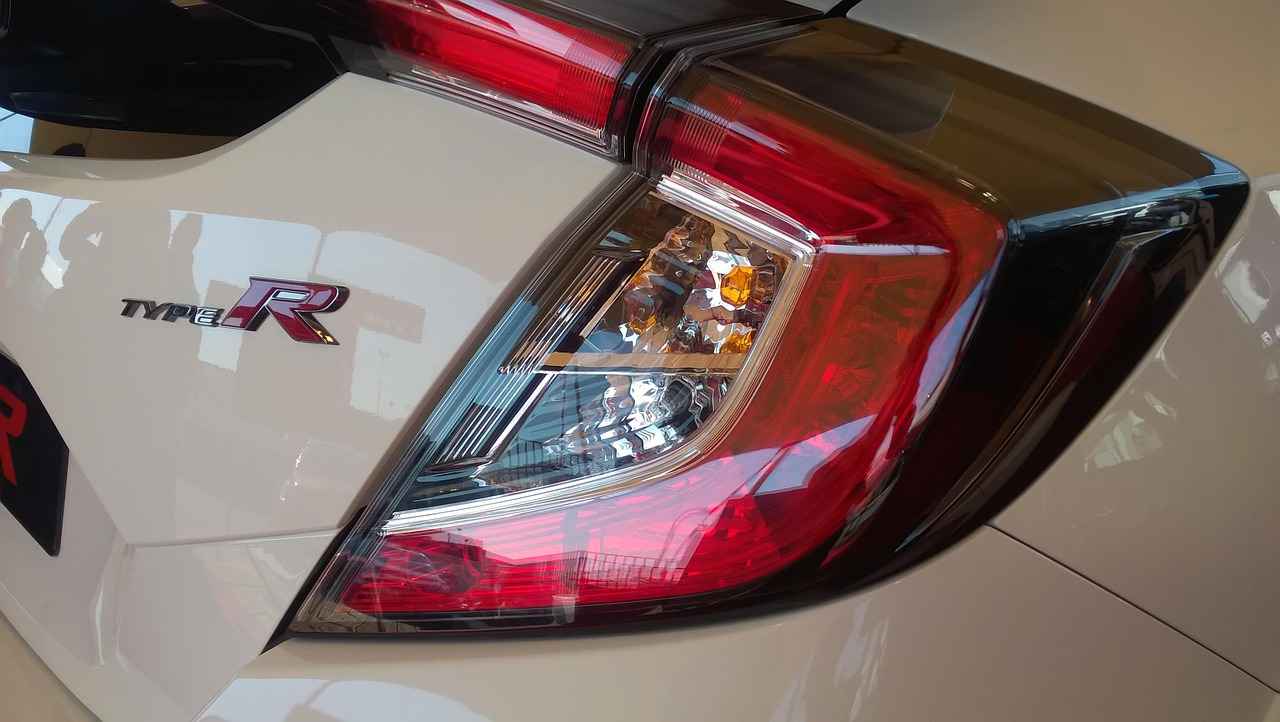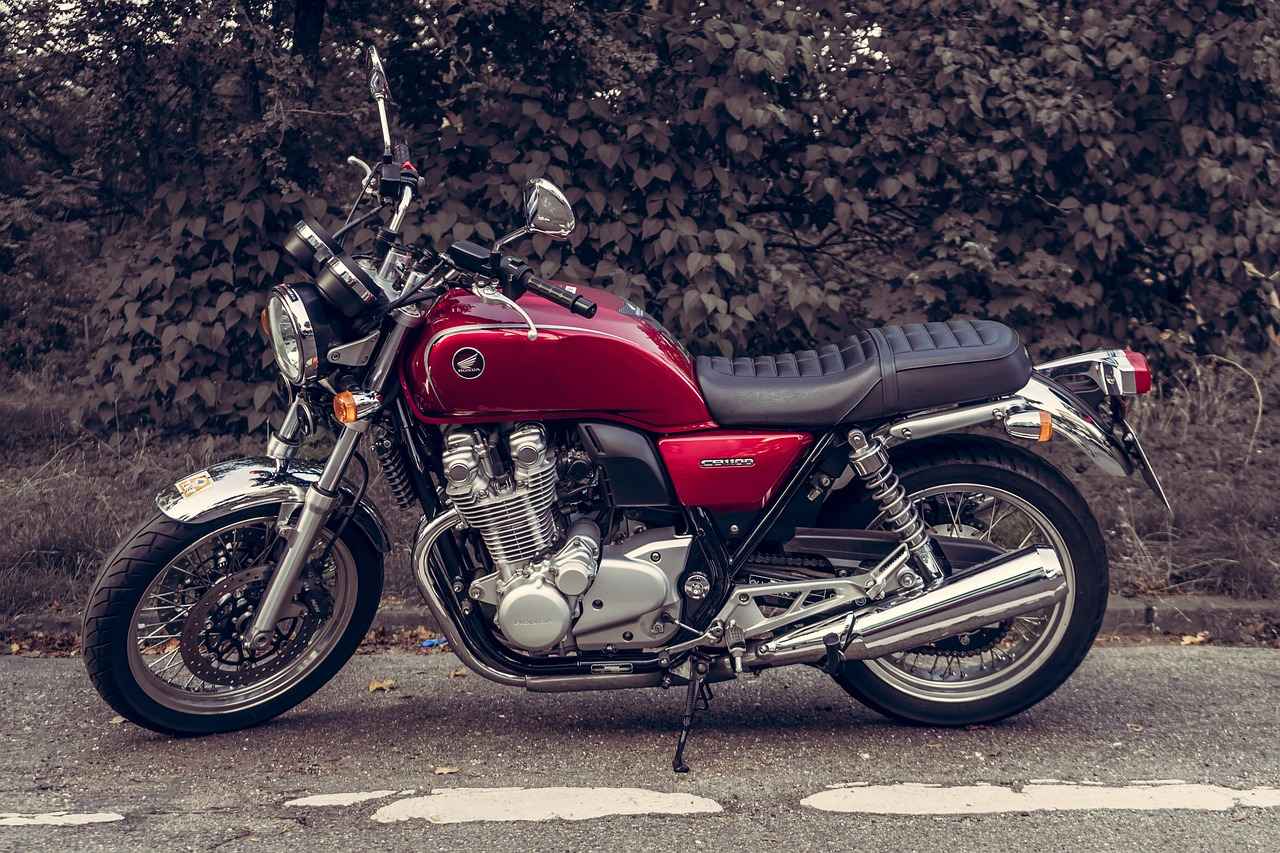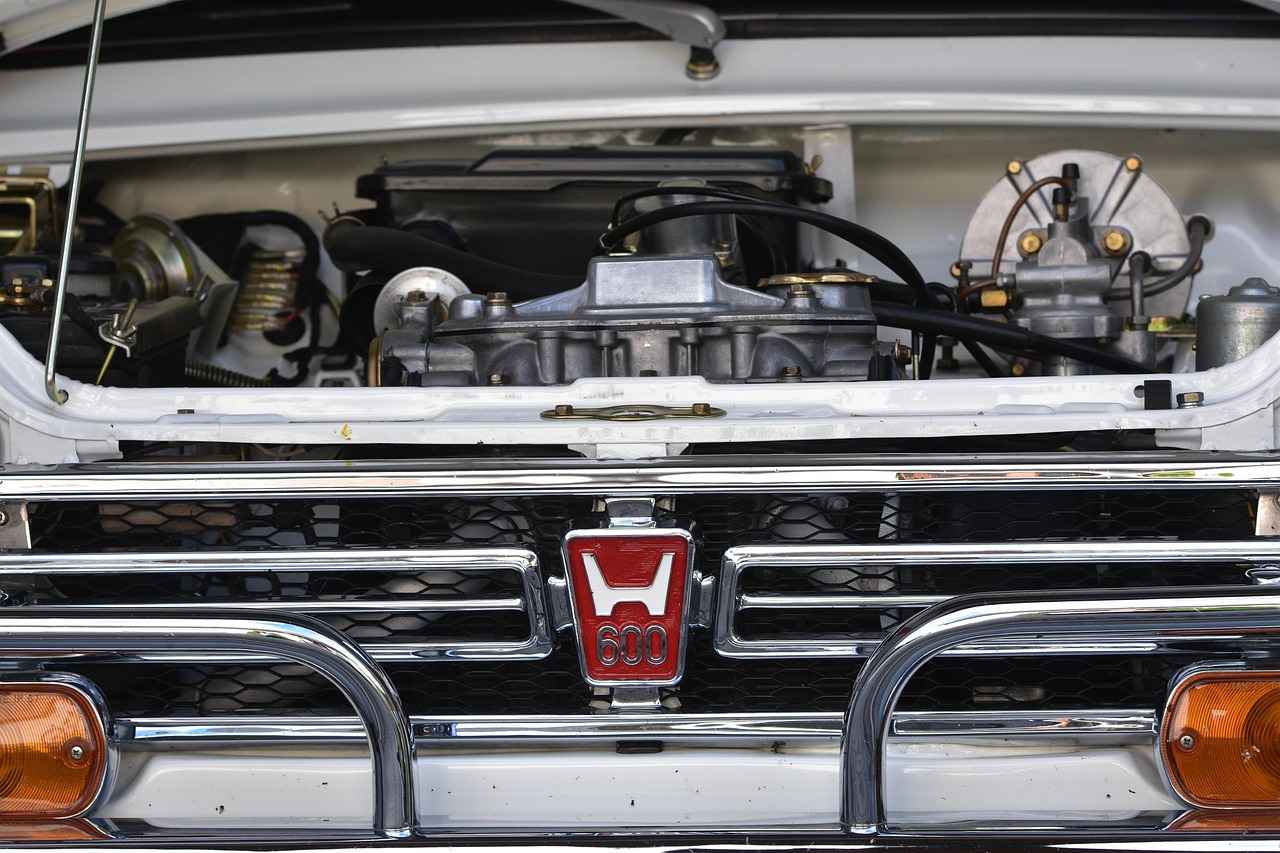The Honda Accord is a popular choice among car buyers, known for its reliability, comfort, and impressive features. However, understanding the cost associated with purchasing and owning this vehicle is crucial for potential buyers. This article delves into various factors influencing the price of the Honda Accord, including model variations, trims, and additional expenses that come with ownership.
The base price of the Honda Accord can fluctuate significantly based on the model year and trim level. For instance, the latest models typically offer advanced features that justify a higher price tag. Buyers should also consider the availability of different trims, as these can range from the more affordable options to luxury variants.
The Honda Accord is available in several trims, each with unique features and pricing structures. Understanding these differences can help buyers make informed decisions:
- LX Trim: This is often the entry-level option, providing essential features at a competitive price.
- Sport Trim: This option adds sporty features and enhancements, making it a popular choice for those looking for a dynamic driving experience.
- Touring Trim: As the top-tier option, this trim offers luxury features and advanced technology, reflecting a higher price point.
When budgeting for a Honda Accord, it’s essential to account for additional costs beyond the purchase price. These can include:
- Taxes: Depending on your location, sales tax can significantly affect the overall price.
- Registration Fees: These fees vary by state and can add to your initial costs.
- Dealer Fees: Be aware of any additional fees that dealerships may charge.
Financing plays a crucial role in the overall cost of owning a Honda Accord. Various financing options are available, including:
- Loans: Traditional auto loans can help spread the cost over several years.
- Leasing: Leasing can be an attractive option for those who prefer driving a new vehicle every few years.
Insurance costs can vary widely based on factors such as the model of the Honda Accord and the driver’s profile. It’s advisable to obtain quotes from multiple insurance providers to find the best rates. Typically, the Accord is known for reasonable insurance premiums compared to other vehicles in its class.
When considering the purchase of a Honda Accord, it’s beneficial to compare its cost with similar vehicles. Competitors such as the Toyota Camry and Nissan Altima may offer different pricing structures and features. Analyzing these differences can help buyers determine the best value.
Owning a vehicle involves more than just the initial purchase price. Long-term costs associated with owning a Honda Accord include:
- Maintenance: Regular maintenance is necessary to keep the vehicle running smoothly.
- Fuel Expenses: The Accord is known for its fuel efficiency, which can help save money over time.
Potential buyers should explore various discounts or incentives that may be available when purchasing a Honda Accord. Manufacturers often provide promotions that can significantly reduce the overall cost.
In addition to traditional financing, buyers should consider leasing options that may offer lower monthly payments and the flexibility to drive a new car more frequently. Understanding the terms of each option is crucial for making the best financial decision.
Timing can greatly influence the price of a Honda Accord. Factors such as end-of-year sales, holiday promotions, and new model releases can create opportunities for buyers to get better deals. Staying informed about market trends can help you make a strategic purchase.

What Is the Base Price of the Honda Accord?
The Honda Accord has long been a favored choice among sedan enthusiasts, renowned for its reliability, comfort, and advanced features. However, potential buyers often wonder: The answer is not straightforward, as the price can fluctuate significantly depending on various factors such as the model year, trim level, and additional options selected. Understanding these elements is crucial for anyone considering a purchase.
The base price of the Honda Accord varies primarily based on the model year and trim level. Newer models typically command higher prices due to advancements in technology and safety features. Additionally, each trim level offers a different set of features, which also impacts the overall cost.
The Honda Accord is available in several trims, each designed to cater to different preferences and budgets. Here’s a breakdown of how these trims can affect pricing:
- LX Trim: This is often the entry-level option, providing essential features at a competitive price point. The LX trim typically includes a reliable engine, basic infotainment system, and standard safety features.
- Sport Trim: The Sport trim enhances the driving experience with additional features like a more advanced sound system, sport pedals, and upgraded alloy wheels. This trim justifies a higher price due to the added value it provides.
- Touring Trim: For those seeking luxury, the Touring trim is the pinnacle of the Honda Accord lineup, featuring premium materials, advanced technology, and a suite of safety features. This trim comes with the highest price tag, reflecting its status as the most equipped option.
When budgeting for a Honda Accord, it’s essential to consider costs beyond the base price. These can include:
- Taxes: Depending on your location, sales tax can add a significant amount to your total cost.
- Registration Fees: Don’t forget to factor in the cost of registering your vehicle, which varies by state.
- Dealer Fees: Many dealerships charge additional fees for documentation and processing.
Financing your Honda Accord can also affect its overall cost. Various financing options are available, including traditional loans, leasing, and manufacturer financing programs. Each option has its pros and cons, and understanding them can help you make an informed decision.
Insurance is another critical factor to consider when calculating the total cost of ownership. Insurance premiums can vary widely based on the model year, trim level, and your personal driving history. Generally, newer and higher trim models tend to have higher insurance rates due to their increased value and features.
When evaluating the Honda Accord, it’s beneficial to compare its pricing and features with similar vehicles in the market. Competing models may offer different advantages, and understanding these can help you determine the best value for your money.
Owning a vehicle involves more than just the initial purchase price. Long-term costs such as maintenance, fuel, and depreciation play a significant role in the overall expense of owning a Honda Accord. Regular maintenance is crucial for preserving the vehicle’s value and ensuring optimal performance.
Potential buyers should also explore available discounts or incentives, such as manufacturer rebates, seasonal promotions, or financing deals. These offers can significantly reduce the overall cost of purchasing a Honda Accord.
Before making a purchase, it’s wise to review the financing and leasing options available for the Honda Accord. Different plans can offer varying benefits, and understanding these can help you choose the best financial pathway for your needs.
Timing your purchase can also impact the price of a Honda Accord. Seasonal sales events, end-of-year clearance sales, and new model releases can provide opportunities to secure better deals.

How Do Different Trims Affect the Price?
The Honda Accord is a well-regarded midsize sedan known for its reliability, comfort, and advanced features. One of the key aspects that potential buyers consider is how different trims affect the overall price of the vehicle. This section delves into the various trims available for the Honda Accord, outlining their unique features, pricing differences, and what you can expect for your investment.
The Honda Accord is available in several trims, each designed to cater to different preferences and budgets. The primary trims include:
- LX
- Sport
- Sport Special Edition
- EX-L
- Touring
Each trim level comes with its own set of features that contribute to the overall driving experience. Here’s a breakdown of what each trim offers:
| Trim Level | Starting Price | Key Features |
|---|---|---|
| LX | $27,000 | Standard safety features, 7-inch touchscreen, Honda Sensing suite. |
| Sport | $29,000 | 18-inch alloy wheels, sport pedals, upgraded audio system. |
| Sport Special Edition | $30,500 | Leather-trimmed seats, wireless phone charger, unique styling elements. |
| EX-L | $32,000 | Sunroof, premium audio system, additional safety features. |
| Touring | $36,000 | Heads-up display, ventilated front seats, advanced navigation. |
The cost differences between the trims can be attributed to the features included in each package. For instance, the Sport trim offers a more dynamic driving experience with added performance features, while the Touring trim focuses on luxury and technology, justifying its higher price point. Understanding these features allows buyers to assess which trim best aligns with their needs and budget.
When considering the purchase of a Honda Accord, it’s crucial to factor in additional costs such as taxes, registration fees, and potential dealer charges. These costs can vary by location and may influence the overall budget.
Financing is another critical aspect that can affect the affordability of the Honda Accord. Buyers can choose from various financing options, including loans with different terms and interest rates. Understanding these options can help you make a more informed decision and manage monthly payments effectively.
It’s also beneficial to compare the Honda Accord with similar vehicles in its class. This comparison can provide insights into whether the price of the Accord is justified based on features and performance relative to its competitors.
In summary, the Honda Accord offers a range of trims that cater to different preferences and budgets. By understanding the features and pricing associated with each trim, buyers can make a more informed decision that aligns with their needs and financial situation.
Understanding the LX Trim
The Honda Accord is a well-regarded vehicle known for its reliability and performance. Among the various trims available, the LX trim serves as the entry-level option, making it an attractive choice for many buyers. In this section, we will delve into the pricing of the LX trim and explore the standard features it offers, giving you a comprehensive understanding of its value.
The pricing for the Honda Accord LX trim is designed to be accessible for a wide range of consumers. Typically, the base price for the LX trim starts at around $27,000, depending on the model year and any additional options selected. This competitive pricing positions the Accord as a strong contender in the midsize sedan market.
The LX trim is equipped with a variety of standard features that enhance both comfort and convenience. Key features include:
- Honda Sensing® Suite: This advanced safety technology package includes collision mitigation braking, road departure mitigation, adaptive cruise control, and lane-keeping assist.
- 7-Inch Touchscreen Display: The user-friendly interface allows for easy access to infotainment features, including Apple CarPlay and Android Auto compatibility.
- LED Headlights: These enhance visibility during nighttime driving, providing a safer driving experience.
- Spacious Interior: The LX trim offers ample legroom and cargo space, making it a practical choice for families and individuals alike.
While the LX trim is designed to provide essential features at an affordable price, higher trims such as the Sport and Touring models offer additional upgrades. For instance, the Sport trim includes features like a more powerful engine, sport pedals, and a larger touchscreen, while the Touring trim adds luxury features such as leather upholstery and advanced navigation systems. Buyers must weigh these features against their budget and needs.
When considering the overall value of the Honda Accord LX trim, it is important to factor in not only the price but also the long-term benefits of ownership. The LX trim’s fuel efficiency, reliability, and resale value make it a smart investment. Additionally, Honda’s reputation for durability means that owners can expect lower maintenance costs over time.
Potential buyers should also explore any available incentives or discounts when considering the LX trim. Honda often offers promotional financing rates or cash-back deals that can further reduce the purchase price. Checking with local dealerships for current offers can lead to significant savings.
In summary, the Honda Accord LX trim stands out as a well-rounded option for those seeking a reliable, feature-rich sedan without breaking the bank. Its competitive pricing, combined with a robust set of standard features, ensures that it delivers excellent value for both new and experienced car buyers.
Exploring the Sport Trim
The Honda Accord is renowned for its blend of style, performance, and technology. Among its various trims, the Sport trim stands out as a popular choice for those seeking a more dynamic driving experience. This section delves into the pricing and features that make the Sport trim a compelling option for buyers.
The Sport trim of the Honda Accord introduces a range of enhancements that elevate both the aesthetic and functional aspects of the vehicle. For a starting price that is typically higher than the base LX trim, buyers can expect significant upgrades that justify the investment.
- Performance Enhancements: The Sport trim often includes a more powerful engine option, providing an exhilarating driving experience. This upgrade can result in improved acceleration and overall performance.
- Exterior Styling: This trim features a sportier exterior design, including unique alloy wheels, a rear spoiler, and aggressive front styling that enhance its visual appeal.
- Interior Features: Inside, the Sport trim typically boasts upgraded upholstery, a larger infotainment screen, and enhanced audio systems, making every drive enjoyable.
- Advanced Technology: The integration of advanced safety features and driver-assistance technologies is often more pronounced in the Sport trim, providing peace of mind on the road.
The price of the Sport trim generally sits between the base LX trim and the higher-end Touring trim. While it is more expensive than the LX, the additional features and sporty enhancements make it a worthwhile investment for many buyers. The typical price range for the Sport trim can vary but often starts around $28,000, depending on the model year and optional features selected.
| Trim Level | Starting Price | Key Features |
|---|---|---|
| LX | $26,000 | Standard features, basic infotainment |
| Sport | $28,000 | Sporty design, upgraded interior, enhanced tech |
| Touring | $33,000 | Luxury features, advanced safety tech |
For many drivers, the additional cost of the Sport trim is justified by the enhanced features and driving dynamics. If you prioritize a sportier feel and advanced technology, the Sport trim provides excellent value. It’s particularly appealing to younger buyers or those who enjoy a more engaging driving experience.
In summary, the Honda Accord Sport trim not only enhances the vehicle’s performance but also enriches the driving experience with its stylish design and advanced features. Evaluating your personal preferences and budget will help determine if the Sport trim aligns with your needs, making it a worthy consideration in your car-buying journey.
What About the Touring Trim?
The Honda Accord has long been a favorite among mid-size sedans, and one of its most appealing offerings is the Touring trim. This top-tier variant combines luxury with cutting-edge technology, making it a standout choice for those seeking both comfort and performance. In this section, we will delve into the pricing of the Touring trim and the premium features that set it apart from other trims.
The Touring trim of the Honda Accord is typically priced at the higher end of the spectrum, reflecting its extensive list of features and enhancements. As of the latest models, buyers can expect to pay approximately $36,000 to $38,000. This price point positions the Touring trim as an investment in quality and sophistication.
The Touring trim is designed for those who appreciate a blend of luxury and technology. Here are some of the standout features:
- Leather Upholstery: The interior is adorned with high-quality leather, providing a refined and comfortable atmosphere.
- Advanced Audio System: A premium audio system delivers exceptional sound quality, enhancing the driving experience.
- Navigation System: Integrated GPS navigation helps drivers find their way with ease, featuring real-time traffic updates.
- Adaptive Cruise Control: This feature automatically adjusts the vehicle’s speed to maintain a safe distance from the car in front.
- Head-Up Display: Important information is projected onto the windshield, allowing drivers to keep their eyes on the road.
- Wireless Charging: Conveniently charge your devices without the hassle of cords.
When comparing the Touring trim to lower trims such as the Sport and EX-L, the differences in price and features become evident. The Sport trim, for example, starts at around $28,000 and offers a sportier design and some upgraded features, but it lacks the comprehensive luxury package found in the Touring trim. The EX-L trim, priced in the mid-$30,000 range, provides a good balance of features but still falls short of the high-end amenities available in the Touring variant.
While the price of the Touring trim reflects its premium status, potential buyers should also be mindful of additional costs associated with ownership. These may include:
- Insurance: Premium vehicles often come with higher insurance costs, so it’s wise to obtain quotes beforehand.
- Maintenance: Regular maintenance is essential to keep the vehicle in optimal condition, and luxury features may require specialized service.
- Fuel Costs: Although the Accord is known for its fuel efficiency, the Touring trim’s performance features may impact fuel consumption.
Financing the Touring trim can be approached through various options. Many dealerships offer competitive financing plans, including low-interest loans and leasing options. Buyers are encouraged to shop around and compare rates to find the best deal that fits their budget.
Occasionally, Honda may offer promotions or incentives that can lower the overall cost of the Touring trim. It’s advisable for potential buyers to check with local dealerships for any current offers that could benefit them.
In summary, the Honda Accord Touring trim represents a compelling choice for those seeking a combination of luxury, technology, and performance. Its price reflects the quality and features offered, making it a worthwhile investment for discerning drivers.

Are There Additional Costs to Consider?
When considering the purchase of a Honda Accord, it is crucial to recognize that the initial purchase price is just the tip of the iceberg. Many potential buyers overlook additional costs that can significantly impact their overall budget. This section delves into the various expenses that accompany buying and owning a Honda Accord, ensuring that buyers are well-informed before making their decision.
Beyond the sticker price, buyers should factor in several essential expenses:
- Taxes: Sales taxes vary by state and can add a substantial amount to the purchase price. It’s important to check local tax rates to accurately calculate the total cost.
- Registration Fees: After purchasing the vehicle, buyers must register their new Honda Accord, which incurs additional fees that depend on the vehicle’s value and the state of registration.
- Dealer Fees: Many dealerships charge various fees, such as documentation fees, which can range from a few hundred to over a thousand dollars. Always ask for a breakdown of these fees to avoid surprises.
- Insurance Costs: The cost of insuring a Honda Accord can vary based on factors such as the driver’s history, location, and coverage type. It is advisable to obtain insurance quotes before finalizing the purchase.
- Maintenance and Repairs: Regular maintenance is essential for keeping the Accord running smoothly. Buyers should budget for routine services, such as oil changes, tire rotations, and unexpected repairs.
- Fuel Expenses: Fuel costs can add up over time, especially if the vehicle is driven frequently. Understanding the Accord’s fuel efficiency can help buyers estimate their monthly fuel expenses.
To effectively manage these additional costs, buyers should consider the following strategies:
- Budgeting: Create a comprehensive budget that includes all potential expenses associated with owning a Honda Accord. This will provide a clearer picture of the total cost of ownership.
- Research: Conduct thorough research on local taxes, registration fees, and dealer charges in your area. Understanding these costs upfront can help avoid unexpected expenses.
- Insurance Comparisons: Shop around for insurance quotes from multiple providers to find the best rates. This can lead to significant savings over time.
- Maintenance Planning: Set aside a maintenance fund to cover routine services and unexpected repairs. This proactive approach can prevent financial strain later on.
Owning a Honda Accord is not just about the initial purchase; it involves a commitment to ongoing costs. Understanding the long-term financial implications can help buyers make informed decisions:
- Depreciation: Like all vehicles, the Honda Accord will depreciate over time. Buyers should be aware of how this affects resale value and long-term investment.
- Financing Costs: If financing the purchase, interest rates will add to the overall cost. Buyers should explore various financing options to find the best deal.
In summary, while the Honda Accord is a popular choice for its reliability and performance, potential buyers must consider a range of additional costs beyond the purchase price. By being aware of these expenses and planning accordingly, buyers can ensure a smoother and more financially sound ownership experience.
What Are the Financing Options?
When considering a purchase of the Honda Accord, understanding your financing options is crucial. Financing can greatly influence the overall cost of the vehicle and your monthly budget. This section dives into the various financing methods available, their implications on monthly payments, and how they can affect your long-term financial commitment.
There are several financing options available for the Honda Accord, each with its own set of advantages and drawbacks. Here are the most common methods:
- Traditional Auto Loans: These loans are typically offered by banks or credit unions. They require a down payment and have fixed or variable interest rates. A lower interest rate can significantly reduce your monthly payments.
- Dealer Financing: Many dealerships provide financing options directly. While this can be convenient, it is essential to compare the interest rates with those of banks to ensure you are getting a competitive deal.
- Leasing: Leasing is an alternative to purchasing. It usually requires a lower down payment and offers lower monthly payments. However, at the end of the lease term, you do not own the vehicle and may face mileage limits and potential fees for wear and tear.
- Personal Loans: Some buyers opt for personal loans to purchase a vehicle. These loans can be unsecured, which means they don’t require collateral, but they often come with higher interest rates.
The terms of your financing play a significant role in determining your monthly payments. Key factors include:
- Loan Amount: The total amount financed will directly impact your monthly payment. A larger loan amount results in higher payments.
- Interest Rate: The interest rate is crucial. A lower rate means lower monthly payments. Rates can vary based on credit scores, so it’s essential to shop around for the best rate.
- Loan Term: The length of the loan also affects payments. Shorter terms mean higher monthly payments but less interest paid over time. Conversely, longer terms reduce monthly payments but increase total interest costs.
Understanding the benefits of each financing option can help you make an informed decision:
- Traditional Auto Loans: They typically offer lower interest rates for those with good credit and allow you to own the car outright after the loan is paid off.
- Dealer Financing: This can be convenient, and some dealers offer promotional rates that can be very competitive.
- Leasing: Leasing often includes warranty coverage for the duration of the lease, minimizing repair costs.
- Personal Loans: They can provide flexibility in how you use the funds, but be mindful of higher interest rates.
Choosing the right financing option depends on your financial situation and preferences. Consider the following:
- Your Budget: Assess how much you can afford for a down payment and monthly payments.
- Your Credit Score: A higher credit score usually qualifies you for better rates, so check your score before applying.
- Length of Ownership: If you plan to keep the vehicle long-term, financing may be more beneficial than leasing.
In conclusion, understanding the financing options available for the Honda Accord is essential for making an informed decision. Each option has its own implications on monthly payments and overall cost. By carefully evaluating your financial situation and comparing different financing methods, you can find the best plan that suits your needs.
How Does Insurance Impact Ownership Costs?
When considering the overall cost of owning a vehicle, one crucial factor that often gets overlooked is insurance costs. The Honda Accord, a popular choice among consumers, presents unique considerations when it comes to insurance premiums. In this section, we will delve into how various aspects of the Honda Accord and the driver’s profile can influence insurance rates.
Insurance premiums for the Honda Accord can vary based on several key factors:
- Vehicle Model and Trim: Different trims of the Honda Accord come with varying levels of safety features, performance capabilities, and overall value, all of which can impact insurance costs. For example, the Touring trim, which includes advanced safety technologies, may qualify for discounts due to its enhanced safety ratings.
- Driver Profile: Insurance companies assess individual driver profiles, including age, driving history, and location. A younger driver with limited experience may face higher premiums compared to a more experienced driver.
- Safety Ratings: The Honda Accord consistently receives high safety ratings from organizations like the IIHS and NHTSA. Vehicles with better safety ratings may qualify for lower insurance premiums.
- Claims History: If the driver has a history of accidents or claims, this can lead to increased insurance costs.
It’s essential to shop around when looking for insurance for your Honda Accord. Different insurance providers may offer varying rates based on their underwriting criteria. Here are some tips to consider:
- Get Multiple Quotes: Always obtain quotes from several insurance companies to find the most competitive rate.
- Look for Discounts: Many insurers offer discounts for safe driving, bundling policies, or having a vehicle with advanced safety features.
- Consider Usage-Based Insurance: Some companies offer usage-based insurance that can lower premiums based on actual driving behavior.
There are several effective strategies that Honda Accord owners can employ to reduce their insurance premiums:
- Increase Deductibles: Opting for a higher deductible can lower monthly premiums but be sure to have enough savings to cover the deductible in case of an accident.
- Maintain a Clean Driving Record: A history devoid of accidents or traffic violations can significantly reduce insurance costs.
- Utilize Safety Features: Make the most of the Accord’s safety features, such as anti-lock brakes and airbags, which can lead to lower rates.
When comparing the Honda Accord to other vehicles in its class, it’s important to note that its insurance costs may be more favorable due to its reputation for safety and reliability. Vehicles known for higher theft rates or lower safety ratings typically incur higher insurance premiums.
In conclusion, understanding how insurance impacts ownership costs for the Honda Accord is vital for potential buyers. By considering factors such as vehicle model, driver profile, and the insurance market, owners can make informed decisions that help mitigate costs. With careful planning and research, Honda Accord owners can enjoy the benefits of their vehicle while keeping insurance expenses manageable.

How Does the Honda Accord Compare to Competitors?
When considering a new vehicle, understanding how the Honda Accord compares to its competitors is crucial for making an informed choice. The midsize sedan market is competitive, with several manufacturers offering vehicles that challenge the Accord in terms of price, features, and overall value. In this section, we will delve into a comparative analysis of the Honda Accord and its key rivals, highlighting their strengths and weaknesses.
- Toyota Camry
- Hyundai Sonata
- Nissan Altima
- Ford Fusion
The base price of the Honda Accord is competitive within its class, typically falling in the mid-range compared to its rivals. For instance, the starting price of the Accord is often similar to the Toyota Camry, but can be slightly higher than the Hyundai Sonata. However, when considering the features included in each trim, the Accord often provides better value, especially in terms of standard technology and safety features.
One of the standout features of the Honda Accord is its spacious interior and trunk space, which often surpasses that of the Nissan Altima and Ford Fusion. Additionally, the Accord is known for its reliable performance and efficient fuel economy, making it a strong contender against the competition. The inclusion of advanced safety technologies, such as Honda Sensing, is a significant advantage over some competitors that may charge extra for similar features.
When evaluating long-term ownership costs, maintenance is a critical factor. The Honda Accord generally enjoys a reputation for low maintenance costs, which can be a significant advantage over rivals like the Ford Fusion. According to industry reports, the Accord’s reliability translates to fewer trips to the mechanic, resulting in lower overall expenses for owners.
Another important consideration is resale value. The Honda Accord consistently ranks high in resale value compared to its competitors. This is due to its strong reputation for reliability and quality. Buyers can expect to retain a larger percentage of their investment when selling or trading in their Accord, compared to vehicles like the Hyundai Sonata, which may depreciate more quickly.
Customer satisfaction plays a significant role in the decision-making process. The Honda Accord often receives high marks for comfort, driving experience, and overall satisfaction. In contrast, while the Toyota Camry also garners positive reviews, some drivers prefer the Accord’s more engaging driving dynamics and user-friendly technology interface.
Market trends indicate a growing preference for hybrid and electric vehicles. The Honda Accord offers a hybrid variant that competes well against hybrids from competitors like the Toyota Camry. This option allows buyers to enjoy the benefits of fuel efficiency without sacrificing the spaciousness and comfort the Accord is known for.
In summary, comparing the Honda Accord to its competitors reveals a well-rounded vehicle that excels in various areas, including price, features, and long-term value. Buyers should carefully consider their priorities and preferences when making a decision, but the Accord remains a strong contender in the crowded midsize sedan market.

What Are the Long-Term Ownership Costs?
When considering the purchase of a vehicle, it’s crucial to look beyond the initial price tag. The Honda Accord, known for its reliability and performance, comes with a range of long-term ownership costs that potential buyers should be aware of. This section delves into these costs, including maintenance, fuel expenses, and other factors that can affect your budget over time.
Regular maintenance is essential for keeping your Honda Accord in top condition. Typical maintenance costs can vary based on factors such as mileage and driving habits. On average, owners can expect to spend between $400 and $600 annually on routine maintenance, which includes oil changes, tire rotations, and brake inspections. Additionally, major services, such as timing belt replacements, can add to these costs, potentially reaching $1,000 or more over the lifespan of the vehicle.
The Honda Accord is renowned for its fuel efficiency, which can significantly reduce long-term ownership costs. Depending on the model year and engine type, the Accord typically achieves an average of 30 to 35 miles per gallon (MPG). For a driver covering around 15,000 miles per year, this translates to approximately $1,200 to $1,500 spent on fuel annually, assuming a gas price of $3.00 per gallon.
Insurance is another crucial factor in the overall cost of ownership. The average annual insurance premium for a Honda Accord ranges from $1,000 to $1,500, depending on the driver’s profile, location, and coverage options. It’s advisable for potential buyers to shop around for the best rates and consider factors such as their driving history and credit score, which can influence premiums.
Depreciation is a natural part of vehicle ownership that can impact the long-term costs of the Honda Accord. Generally, cars lose about 20% to 30% of their value within the first three years. For the Accord, this means that a vehicle purchased for $25,000 might be worth only $17,500 to $20,000 after three years. Understanding depreciation can help owners make informed decisions about when to sell or trade in their vehicle.
While the Honda Accord is known for its reliability, unexpected repairs can arise. On average, owners should budget around $500 to $1,000 annually for unforeseen repairs. This budget can cover issues such as transmission repairs or electrical system malfunctions. It’s wise to set aside a small emergency fund for these unexpected costs to avoid financial strain.
- Regular Maintenance: Adhering to the manufacturer’s maintenance schedule can prevent costly repairs down the line.
- Fuel Efficiency: Opting for eco-friendly driving habits can enhance fuel economy and reduce gas expenses.
- Insurance Shopping: Comparing insurance quotes can lead to significant savings.
- Warranty Coverage: Consider purchasing an extended warranty to cover major repairs after the factory warranty expires.
In summary, owning a Honda Accord comes with various long-term costs that extend beyond the initial purchase price. By understanding and planning for maintenance, fuel, insurance, and depreciation, potential owners can make informed decisions and enjoy the benefits of this reliable vehicle for years to come.

Are There Any Discounts or Incentives Available?
When considering the purchase of a Honda Accord, potential buyers should be aware of the various discounts and incentives that may be available. These offers can significantly lower the overall cost of the vehicle, making it more accessible for a wider range of consumers. This section will explore the current promotions and financial incentives that Honda provides to help buyers save money.
Honda frequently runs promotional campaigns that include cash rebates, low-interest financing, and special lease offers. These promotions can vary based on the time of year, location, and dealership. For example, during holiday sales events, buyers may find enhanced offers that can lead to substantial savings.
- Manufacturer Cash Rebates: Honda often provides cash rebates that directly reduce the purchase price of the Accord. These rebates can range from hundreds to thousands of dollars, depending on the model year and trim level.
- Trade-In Bonuses: Some dealerships offer additional incentives for customers who trade in their old vehicles, further lowering the cost of a new Accord.
Financing options can also include special rates for qualified buyers. Honda may offer 0% APR financing for a limited time, which can help buyers save on interest payments over the life of the loan. This can make a significant difference in the total cost of ownership.
For those considering leasing, Honda often provides attractive leasing deals that can include lower monthly payments compared to traditional financing. These offers may come with reduced down payments and favorable mileage allowances, making leasing an appealing option for many buyers.
It’s important for buyers to keep an eye on seasonal promotions, especially during major holidays such as Memorial Day, Labor Day, and the end of the year. During these times, dealerships may offer additional incentives that can lead to significant savings on a new Honda Accord.
Potential buyers should research local dealerships to find the best deals available in their area. Many dealerships have their own unique incentives that can complement Honda’s national offers. Checking dealership websites or contacting them directly can uncover exclusive deals that may not be widely advertised.
There are numerous online resources available where buyers can compare current offers and incentives. Websites dedicated to automotive sales often list the latest promotions and can help buyers identify the best time to purchase.
In summary, potential buyers of the Honda Accord should take advantage of the various discounts and incentives available. By staying informed about current promotions, researching local deals, and utilizing online resources, buyers can significantly reduce their overall costs and make their purchase more affordable. Whether it’s through cash rebates, financing options, or seasonal promotions, there are numerous ways to save on this popular sedan.

What Financing and Lease Options Are Available?
When considering the purchase of a Honda Accord, it is crucial for buyers to evaluate their financing and leasing options. Understanding the available plans can significantly affect both the affordability and overall satisfaction with the vehicle. This section delves into the various financing and leasing options, highlighting their benefits and helping buyers make informed decisions.
Financing a Honda Accord typically involves obtaining a loan through a bank, credit union, or dealership. Here are some common financing options:
- Traditional Auto Loans: These loans are offered by banks and credit unions, allowing buyers to borrow a specific amount at a fixed or variable interest rate. The terms usually range from 36 to 72 months.
- Dealership Financing: Many Honda dealerships offer financing options directly. This can be convenient, as they often have partnerships with lenders and may provide promotional rates.
- Leasing: Leasing is a popular alternative to buying, allowing drivers to enjoy a new Honda Accord for a set period, usually 2 to 3 years, with lower monthly payments compared to financing. At the end of the lease, the buyer can choose to purchase the vehicle or return it.
Choosing to finance a Honda Accord comes with several benefits:
- Ownership: Once the loan is paid off, the buyer owns the vehicle outright, providing long-term value.
- No Mileage Restrictions: Unlike leasing, financing does not impose mileage limits, which is ideal for those who drive extensively.
- Customization: Owners can modify their vehicle as they wish, enhancing personalization.
Leasing can also be a smart choice for many buyers, offering distinct advantages:
- Lower Monthly Payments: Leasing typically results in lower monthly payments compared to financing, making it easier to afford a higher trim level.
- Newer Models: Leasing allows drivers to drive a new Honda Accord every few years, ensuring access to the latest technology and features.
- Warranty Coverage: Most leases cover the duration of the vehicle’s warranty, reducing maintenance costs.
Deciding whether to finance or lease a Honda Accord depends on individual preferences and circumstances. Here are some factors to consider:
- Driving Habits: If you drive a lot, financing might be better due to mileage restrictions on leases.
- Budget: Consider your budget for monthly payments. Leasing often offers lower payments, but financing may be more cost-effective in the long run.
- Future Plans: Think about how long you plan to keep the vehicle. If you prefer changing cars frequently, leasing may be more suitable.
In conclusion, whether financing or leasing, potential buyers of the Honda Accord should carefully assess their options. By understanding the benefits and drawbacks of each plan, buyers can make a choice that aligns with their financial situation and driving needs.

How to Determine the Best Time to Buy?
When considering a purchase of the Honda Accord, understanding the timing of your purchase can be crucial for securing the best price. Various factors play a role in determining the optimal time to buy, including seasonal trends, dealership promotions, and model year changes. This section delves into the best strategies for timing your purchase to maximize savings.
Typically, the best times to buy a Honda Accord are during the end of the year and during holiday sales events. End-of-year sales often coincide with the release of new models, prompting dealerships to offer significant discounts on the outgoing inventory. Additionally, major holidays such as Memorial Day, Labor Day, and Black Friday frequently feature promotional sales that can lead to lower prices.
Dealerships often operate on monthly sales quotas, which can create opportunities for buyers. As the month draws to a close, sales teams may be more inclined to negotiate prices to meet their targets. This means that shopping during the last few days of the month can potentially yield better deals on a Honda Accord.
Interestingly, research suggests that certain days of the week are better for car shopping. Weekdays, particularly Monday and Tuesday, tend to be less busy at dealerships, allowing salespeople more time to negotiate favorable terms for buyers. Conversely, weekends are often crowded and may result in less personalized attention and potentially higher prices.
Manufacturers frequently offer incentives, such as cash rebates or low-interest financing, which can significantly affect the overall purchase price. Staying informed about these incentives and timing your purchase to coincide with their availability can lead to substantial savings. Signing up for newsletters or following automotive websites can keep you updated on the latest offers.
The broader economic climate can also impact car pricing. Factors such as interest rates, fuel prices, and overall market demand can lead to fluctuations in vehicle prices. For instance, during times of economic uncertainty, dealerships may be more willing to offer discounts to stimulate sales. Monitoring these economic indicators can help you choose the right moment to buy.
Timing isn’t just about when to buy new; it also applies to used vehicles. The depreciation curve for new cars means that a Honda Accord typically loses a significant portion of its value within the first few years. Purchasing a used model at the right time—such as when new models are released—can provide excellent value without sacrificing quality.
Finally, thorough research is essential. Utilize online resources to compare prices, read reviews, and check for any ongoing promotions. Being well-prepared and informed not only empowers you to make better decisions but also positions you to negotiate effectively when the time is right.
In summary, timing your purchase of a Honda Accord can significantly impact the price you pay. By understanding seasonal trends, dealership practices, and economic factors, you can strategically position yourself for the best deal possible.
Frequently Asked Questions
- What is the average price of a Honda Accord?
The average price of a Honda Accord can vary widely depending on the model year and trim level. Generally, you can expect a starting price around $25,000 for the base model, but higher trims can reach upwards of $37,000 or more.
- How do the different trims impact the overall cost?
Each trim level of the Honda Accord offers unique features that influence the price. For instance, the LX trim is budget-friendly, while the Sport trim adds sporty features, and the Touring trim includes luxury options, all contributing to higher costs.
- Are there any hidden costs when buying a Honda Accord?
Yes, buyers should consider additional costs such as taxes, registration, dealer fees, and potential maintenance expenses. These can add up and affect your overall budget for the vehicle.
- What financing options are available for purchasing a Honda Accord?
There are several financing options available, including traditional loans, leasing, and special financing offers from dealerships. Each option can affect your monthly payments and overall cost, so it’s worth exploring them thoroughly.
- How does insurance affect the cost of owning a Honda Accord?
Insurance premiums can vary based on the model and your driving history. Generally, the Honda Accord is considered a safe vehicle, which can help lower insurance rates compared to other cars.



